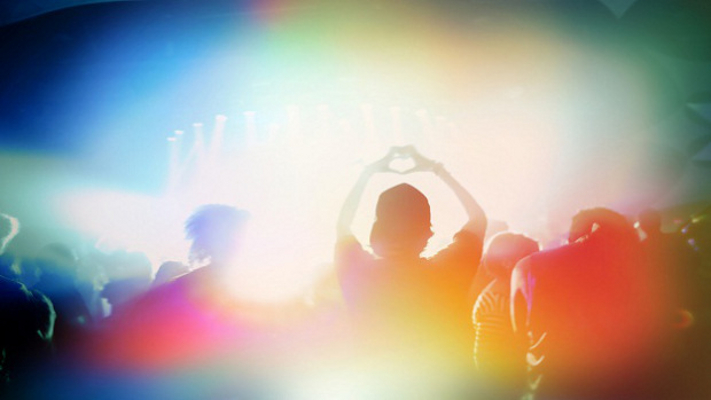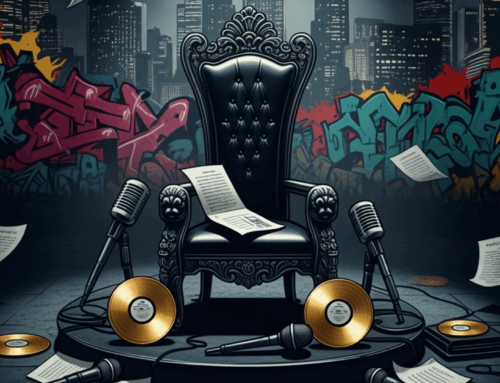All mainstream trends go through a familiar cycle: A buildup, in certain cases from the “underground” to a place more visible; popularity for any given period of time; backlash from the “real” fans, who often claim they liked this trend before everyone else did; and finally being something that’s “cool” to hate.
No trend has an exact expiration date. Vanilla Ice’s lasted for barely even two years, while Eurodance, in spite of its repetitiveness, had a timestamp of over a decade. EDM – now reaching its two-year mark of officially being a “mainstream” thing – might be facing a similar fate.
In spite of hate from the underground coinciding with David Guetta’s rise starting in 2009, the genre, which itself is really an umbrella term representing hundreds of disparate subgenres, has had its proponents. There’s no need to talk about it here; all you have to do is check the Beatport Top 10 or the Billboard Dance/Electronic Songs chart to know that people like and still buy plenty of EDM tracks.
Yet the backlash that once appeared solely reserved for underground circles and Deadmau5 (if this were a Venn Diagram, these two facets of dance music culture wouldn’t overlap in any shape or form) has reached its way to the mainstream – with a Facebook post from Kill The Noise embodying this last month.
The producer who occupies that rung of being big in dance music but virtually unknown everywhere else posted a “plate of sh-t” graphic with an accompanying caption to talk about the increasing corporatization of dance music. He wrote:
“Heh Wanna see the real diagram? You know it’s not so much the music that I’m talking about it’s society as a whole, trends come and go and most people will still gladly eat the next plate of sh-t put in front of them. My favorite artists (not just musicians ) have always had a loud opinion about what they think is good and right, in the end music is all about having a good time, but you know some artists choose to include a message, show you who they are and how they think, paint a picture of how they see the world. Part of my message which is also the message that all of the people who inspire me have said, ‘try to think outside the box, think for yourself, set ur own trend, don’t just sit there, there’s more options than what’s presented to you.’ I love that there is a difference of opinion, cause that’s the kinda sh-t that moves things forward that’s what makes things interesting.”
Many can debate whether Kill The Noise has the right to make this statement about EDM; after all, should you bite the hand that feeds you? But this post is, really, just a visual representation of backlash that started at what feels like all the way back in 2012.
1. Blame The Press
Mainstream press hasn’t been particularly fond toward dance music at any point in time. Until recently, the major music magazines, like Rolling Stone and SPIN, all but ignored it, save for the album reviews in the interior. Niche publications, like DJ Times and Electronic Musician, touched on it, but the explosion of blogs online throughout the 2000s meant the proliferation of more dance music-only publications.
Still, when those in the media turn on you, you know you’re in trouble. Dance music blogs and online magazine have had a love-hate relationship with EDM since the start. News will cover the latest events, happenings, and tracks from the top artists, but then you’ll have an editorial along the lines of “10 Reasons Why EDM’s the Worst” to feign underground cred. It’s a schizophrenic strategy of pandering to the biggest trend while mocking it at the same time to appeal to a far smaller audience.
And since 2012, the “hate” pieces keep on coming, whether it’s the Miami New Times’ Crossfade ragging on EDM fans or someone putting out the umpteenth editorial about how EDM DJs’ supposed play-pressing is killing dance music’s true form. Yet, it’s practically a guarantee you’ll find, at least on a side navigation bar or the blog’s front page, a news story about Avicii getting hospitalized or a review of Steve Aoki’s latest single.
2. The Artists Slag It
Back in early 2013, older dance music performers started talking about how newer artists aren’t “real” dance music. The Chemical Brothers went after Swedish House Mafia on Twitter, while Sasha negatively painted over the entire genre with a broad brush by saying, “Most EDM is made by douchebags for douchebags. Do i care if lots of douchebags buy it? Not really, But it pollutes.”
When Swedish House Mafia scored a hit with “Don’t You Worry Child,” DJ Tommie Sunshine compared the trio to Nickelback, which is a fairly easy comparison, until you realize that Sunshine, while attending the 2010 Winter Music Conference, once praised Lady Gaga and the Black Eyed Pea for making dance music mainstream.
But Sunshine’s hypocrisy – seriously, it’s fine for pop artists to adopt the sounds but it’s selling out when other genre performers find success? – has made a stepping stone for the quintessential EDM performers to ultimately call it quits. Since 2012, we’ve seen Skillex, Porter Robinson, and Zedd talk about branching out into movie scores, Avicii went country-house with True, Robinson make a non-EDM single (and this was a year after rejecting a Katy Perry collaboration), and DJ Mag’s No. 1 Hardwell stated in February that he’s getting away from the EDM formula: “I’m experimenting with a lot of new, different sounds. I’m a bit sick of the same formula that’s going on in EDM right now so I’m just trying to change boundaries and look at what’s going on in the rest of the world. Even in the hip hop scene and the trance scene and try to combine as much as possible.”
3. The “Real” Music Movement
Blame Daft Punk for dredging up sentiment, however misconceived it is, that has been floating around since the ‘80s: That making music with electronic instruments, such as synthesizers and drum machines, or with computers is inferior to guitars and “real” instruments.
That attitude may have netted the French duo a hit with their pseudo-disco song last summer, but it caused a slow chain reaction in the music industry. Aside from EDM artists talking about changing their sounds, it resulted in collaboration-packed albums from Avicii and Major Lazer – because “real” musicians give the air of legitimacy – and rock artists taking pot shots at dance music.
Prince, who’s now poised for another mainstream comeback, did it while premiering upcoming album PLECTRUMELECTRUM with 3rdEyeGirl, claiming his accompanying band is so good that they have no need for backing tracks. Then, Arcade Fire made a similar remark while while at Coachella: “Shout-out to all the bands still playing actual instruments at this festival.”
Deadmau5 then went after the Grammy-winning rock act on Twitter, saying: “arcade fire needs to settle down. some dudes devote their lives to instruments, others to electronic composition by cpu, dafuqs yer problem?
Granted, rock as an entire genre doesn’t have much to stand on, especially after the 2000s, and Arcade Fire’s comments don’t amount to much more than musical elitism, but with ticket sales appearing flat in 2014, is this hating-on-EDM trend a sign its mainstream popularity reached a peak?




